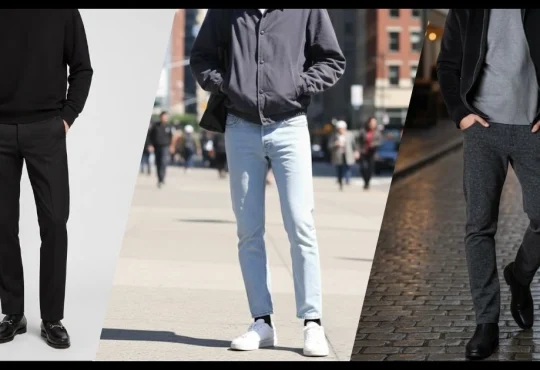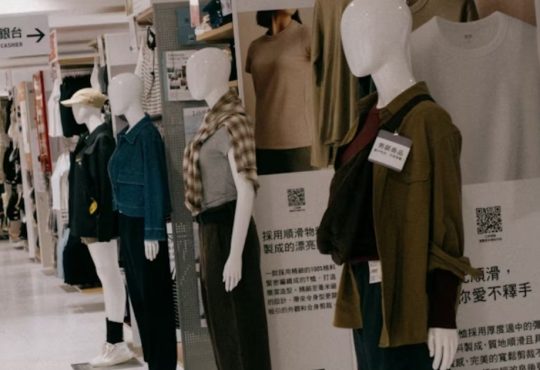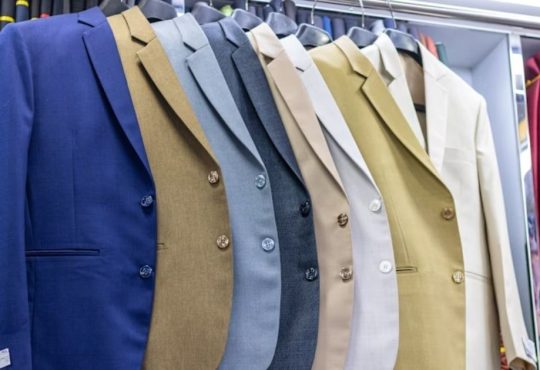In a world that’s constantly evolving, fashion stands as one of the most dynamic and expressive industries. But behind the glamour and allure lies a troubling reality: the fashion industry is one of the world’s largest polluters, responsible for around 10% of global carbon emissions and 20% of wastewater. With this level of impact on the environment, there’s no denying that fashion needs to be more sustainable. And the good news? Change is happening. From high-profile designers to new-age brands, sustainability has become a top priority for both businesses and consumers alike.
Today, more people care about sustainable fashion than ever before. Growing environmental awareness and the power of social media have made consumers question where their clothes come from, what they’re made of, and the effect they have on the planet. In this article, we’ll explore why sustainability is essential for the future of fashion, why today’s shoppers are prioritizing eco-friendly choices, and take a look at 15 popular brands that exclusively sell sustainable clothing for men and women.
Why Does Fashion Needs to Be Sustainable?
The demand for faster, cheaper fashion has taken a huge toll on the environment and exploited workers around the world. The fashion industry’s fast-paced model promotes trends that change constantly, encouraging people to buy more clothes and dispose of them sooner. But producing clothing at this speed comes with significant environmental and social costs.
Here are a few reasons why the shift towards sustainability is essential:
- Environmental Impact: Fashion production requires an immense amount of water, energy, and chemicals. For instance, producing one cotton T-shirt takes about 2,700 liters of water—the same amount one person drinks over two and a half years! Additionally, synthetic fabrics like polyester, found in about 60% of all clothing, are derived from fossil fuels, which contributes to greenhouse gas emissions.
- Waste Management: Globally, more than 92 million tons of textile waste are created each year. Since much of this waste is non-biodegradable, it often ends up in landfills or incinerators, causing further environmental damage. Sustainable practices like recycling, upcycling, and biodegradable materials can help combat this crisis.
- Human Rights Issues: Fast fashion companies have been criticized for poor working conditions, low wages, and even child labor. Sustainable fashion prioritizes fair labor practices, ethical sourcing, and transparency, ensuring that the people making the clothes are treated with respect and paid fairly.
- Resource Depletion: Natural resources are not limitless, and the current rate of consumption is depleting resources faster than they can be replenished. Sustainable fashion encourages the use of organic, recycled, and renewable materials to help preserve the planet’s resources for future generations.
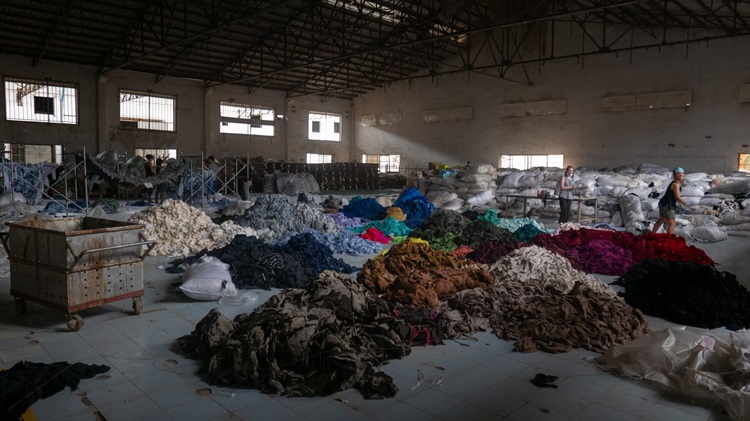
Why Are People Embracing Sustainable Fashion Today?
The shift toward sustainable fashion is gaining momentum for many reasons, driven by a combination of environmental, social, and economic factors. As awareness about the consequences of fast fashion grows, more consumers are choosing to make responsible and mindful purchases. This change is not just a passing trend but a reflection of broader shifts in societal values, technological advancements, and a desire for a better, more sustainable future. Let’s dive deeper into why more people are embracing sustainable fashion today.
1. Increased Awareness of Environmental Impact
In the past few decades, environmental issues have become a central concern for many individuals and communities worldwide. Climate change, resource depletion, pollution, and waste are urgent topics that people are now paying more attention to. The fashion industry, once seen as a glamorous, fun space, is increasingly recognized as one of the biggest contributors to environmental degradation.
Consumers are now more informed about the harmful environmental effects of fast fashion, including the extensive water usage, chemical pollution, and enormous textile waste. The realization that mass-producing cheap clothing comes at a high cost to the planet has sparked a desire to make more conscious choices. Documentaries like The True Cost have played a significant role in educating the public about the exploitative nature of the industry and the environmental destruction caused by overproduction and waste.
As consumers realize the environmental cost of buying cheap, disposable fashion, they are more motivated to choose brands that prioritize sustainability—whether it’s through the use of eco-friendly materials, better waste management practices, or energy-efficient production processes.
2. The Rising Awareness of Ethical and Fair Labor Practices
Sustainability isn’t just about environmental preservation—it’s also about ensuring that workers in the fashion industry are treated fairly. The rise in ethical consumerism has led people to question where their clothes come from and who makes them. Fast fashion has long been associated with poor working conditions, low wages, and exploitative practices in developing countries. Factory workers in some of the world’s largest fashion manufacturing hubs are often subjected to long hours, unsafe environments, and inadequate pay.
As global conversations around human rights and social justice continue to expand, consumers are becoming more aware of these issues and are choosing to support brands that focus on fair trade and ethical labor practices. Brands like People Tree, Everlane, and ABLE provide transparency about their sourcing, ensuring that their workers are paid fairly and work in safe, dignified conditions.
3. A Desire for Transparency and Authenticity
In today’s age of information, consumers want to know exactly where their products come from and how they are made. This demand for transparency has led many consumers to reject brands that obscure the truth about their manufacturing processes, working conditions, and sourcing of materials.
Sustainable brands stand out by embracing transparency, offering detailed information on everything from the origin of their materials to the labor practices used in their factories. Brands like Everlane have pioneered this movement by sharing the true cost of production and giving customers insight into the environmental footprint of their clothing. This transparency helps build trust between the consumer and the brand, showing that the company is genuinely invested in making a positive impact rather than simply profiting from a trend.
4. The Growth of Conscious Consumerism
As global issues like climate change, pollution, and human rights violations continue to dominate discussions, consumers are increasingly aware of the impact their purchases have on the world. Conscious consumerism—also known as ethical or responsible consumption—refers to the practice of buying products that are produced in an environmentally friendly and socially responsible way.
People are no longer simply concerned with purchasing the cheapest or trendiest items; they want to buy from brands that align with their values. Whether it’s choosing organic cotton over conventional, opting for recycled polyester instead of virgin materials, or buying secondhand rather than brand new, conscious consumers are focused on reducing waste, supporting ethical labor, and contributing to a more sustainable world. This growing trend is forcing major fashion brands to reconsider their business models and prioritize sustainability.
5. The Impact of Social Media and Influencers
Social media has played a major role in raising awareness about sustainability and ethical fashion. Platforms like Instagram, TikTok, and YouTube have allowed fashion influencers, activists, and brands to share knowledge about the environmental and social impacts of the fashion industry. These platforms offer a space for consumers to engage with sustainable fashion trends, share tips, and connect with brands that prioritize eco-conscious practices.
Influencers and fashion bloggers who promote sustainability have become powerful agents of change, encouraging their followers to make more responsible purchases. This has led to a “greenwashing” counter-movement where brands that claim to be eco-friendly but aren’t genuinely sustainable are being called out. This scrutiny has pushed even larger brands to be more transparent and to adopt better environmental and ethical practices.
6. Personal Empowerment Through Sustainability
Today’s consumers want to make a difference, and sustainable fashion offers a way for them to take action. Wearing sustainable clothing isn’t just about the products themselves—it’s about making a statement. For many people, choosing eco-friendly clothing allows them to align their personal values with their purchasing habits. This is especially true for younger generations, such as Millennials and Gen Z, who are known for being highly conscious of social and environmental issues.
In an age where personal empowerment is increasingly important, people feel more motivated than ever to take responsibility for their choices. By supporting brands that prioritize sustainability, consumers feel they are contributing to a broader, global movement that tackles climate change, environmental destruction, and social inequality. It’s a way of making fashion a force for good.
7. Technological Innovation and Accessibility
Sustainable fashion is no longer just the realm of niche brands. Technological innovations in fabric production, recycling, and textile manufacturing have made it easier for large-scale brands to integrate sustainability into their operations. For example, advancements in bio-fabrication—using biological materials to create textiles—have opened new doors for creating fabrics that are both sustainable and innovative.
Additionally, as the demand for sustainable products has increased, the prices of eco-friendly materials have begun to drop, making sustainable fashion more accessible to the average consumer. The growth of secondhand and rental markets, like ThredUp, Poshmark, and Rent the Runway, has also made sustainable fashion more accessible, providing people with alternatives to buying new items while still enjoying trendy and high-quality clothing.
8. The Shift to a Circular Economy
The concept of a circular economy is gaining traction, especially in the fashion industry, as consumers and brands alike are moving away from the “take, make, dispose” model toward a more sustainable, circular approach. In a circular economy, products are designed for longevity, repairability, and recyclability, and the focus is on reducing waste and reusing materials. Brands like Nudie Jeans and Patagonia have embraced this model by offering repair services and encouraging consumers to buy less while investing in quality items that will last longer.
Consumers are also becoming more engaged in buying secondhand, renting, or swapping clothes. Platforms like Depop and The RealReal are part of the growing secondhand market, where people can give their clothes a second life and reduce waste. This mindset shift is encouraging consumers to think beyond traditional ownership and embrace alternatives that extend the life of garments.
9. Celebrity and Brand Influence
Many celebrities and high-profile fashion icons are now using their platform to advocate for sustainable fashion. Celebrities like Emma Watson, Leonardo DiCaprio, and Stella McCartney have made a significant impact by promoting ethical brands and speaking out about the environmental and human rights issues related to the fashion industry.
In response, fashion brands are increasingly integrating sustainability into their collections, both as a way to cater to this growing consumer demand and to align with the values of influential public figures. The presence of sustainable fashion in the mainstream is further amplified by collaborations between big brands and eco-conscious influencers, signaling that sustainability is no longer just a niche market but a mainstream movement.
15 Popular Brands Leading the Way in Sustainable Fashion
As sustainability becomes an integral part of the fashion industry, several brands are standing out for their commitment to ethical sourcing, eco-friendly materials, and fair production practices. These brands not only produce stylish and functional clothing for both men and women, but they also prioritize the environment and social responsibility. Below are 15 leading brands that are setting the bar for sustainable fashion:
Patagonia
Patagonia has long been a leader in sustainability, with a focus on environmental conservation and social responsibility. The brand uses recycled polyester, organic cotton, and wool from responsible sources. In addition to using eco-friendly materials, Patagonia promotes fair labor practices and environmental activism. It also encourages consumers to buy less by offering repair services for old items and promoting their “Worn Wear” program to extend the lifespan of garments. Furthermore, Patagonia donates a percentage of its profits to environmental causes.
Everlane
Everlane is known for its radical transparency, offering detailed information about the factories where its clothing is produced, the costs of manufacturing, and the environmental impact of each product. The brand has a “Choose What You Pay” pricing model, which ensures customers can purchase sustainably made clothes without the usual markup. Everlane uses organic cotton, recycled fabrics, and works with factories that comply with ethical labor standards. Its efforts in reducing water usage and carbon emissions also demonstrate its commitment to a more sustainable future.
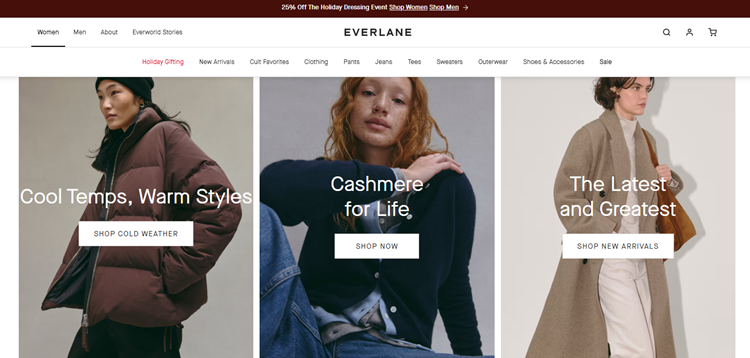
Reformation
Reformation is a California-based brand that has become synonymous with chic, eco-friendly fashion. The brand uses sustainable materials like TENCEL™, recycled fabrics, and deadstock (unused fabric) to create its collections. Reformation also provides a carbon footprint calculator on its website, allowing consumers to see the environmental impact of their clothing choices. The brand’s commitment to sustainability doesn’t end with the design—it also practices responsible production by ensuring fair working conditions in its factories.
Tentree
Tentree stands out not only for its sustainable clothing but also for its environmental initiatives. The brand’s mission is to plant ten trees for every item sold, contributing to reforestation efforts worldwide. Tentree’s garments are made from eco-friendly materials like organic cotton, recycled polyester, and sustainable hemp. Their dedication to sustainability goes beyond products; the company actively works to lower its carbon footprint and promote a circular economy by encouraging clothing recycling.
People Tree
A pioneer in fair trade and sustainable fashion, People Tree has been making waves since the early ’90s. The brand works closely with artisans in developing countries to produce its clothing, ensuring fair wages and safe working conditions. People Tree uses organic cotton, natural dyes, and low-impact manufacturing processes. By supporting local artisans and ensuring ethical labor practices, the brand has become a trusted name in ethical fashion.
Outerknown
Founded by professional surfer Kelly Slater, Outerknown combines ocean-inspired designs with sustainable practices. The brand uses organic cotton, recycled materials, and eco-friendly dyes. Outerknown has partnered with Fair Trade Certified™ factories, ensuring ethical production and worker welfare. The brand also uses sustainable packaging, such as compostable bags and is focused on reducing waste and carbon emissions across its supply chain.
Thought
Thought Clothing is a UK-based brand that focuses on natural, sustainable fibers such as bamboo, hemp, and organic cotton. Thought is committed to a circular economy by offering a range of garments that can be easily recycled or repurposed. The brand also uses eco-friendly packaging and works to reduce water consumption and chemical usage in its production processes. It’s a great option for those looking for stylish, sustainable options with a focus on comfort and durability.
Pact
Pact is a well-known brand that offers a range of basics made with organic cotton, free from pesticides and harmful chemicals. Pact’s clothing is made in Fair Trade-certified factories that promote fair wages and safe working conditions for their workers. In addition to offering organic cotton apparel, Pact has also introduced initiatives like the “Reuse Program,” encouraging customers to recycle their old clothes. The brand’s mission is to make sustainable fashion accessible and affordable without compromising quality.
Allbirds
Allbirds has revolutionized the footwear market with its commitment to sustainability. The brand’s shoes are made from eco-friendly materials like merino wool, eucalyptus trees, and sugarcane. Allbirds has become a global leader in reducing the carbon footprint of footwear, and its efforts to achieve carbon neutrality by offsetting emissions through renewable energy and reforestation projects make it a standout brand in the sustainable fashion world. In addition, Allbirds uses biodegradable packaging and is constantly innovating with new eco-friendly materials.
Nudie Jeans
Nudie Jeans offers high-quality denim that is made using organic cotton, and the brand is known for its focus on longevity and sustainability. Nudie Jeans is committed to reducing textile waste by offering free repairs for life. Their recycling program encourages customers to send back their worn-out jeans, which are then repaired or repurposed. Nudie also focuses on reducing water and energy consumption in its manufacturing process and uses only Fair Trade-certified facilities.
Stella McCartney
As one of the highest-profile luxury brands in the sustainable fashion movement, Stella McCartney has set a new standard for eco-conscious luxury. The brand avoids using leather, fur, and other animal-derived materials, opting instead for innovative alternatives like mushroom leather, recycled polyester, and organic cotton. McCartney is also a strong advocate for sustainability in fashion, using a combination of renewable energy, ethical sourcing, and waste reduction in its operations. Her brand is a leader in demonstrating that sustainability and high fashion can coexist.
ABLE
ABLE is a lifestyle brand dedicated to empowering women through ethical fashion. The company focuses on providing fair wages and economic opportunities for women in developing countries. ABLE’s clothing is made from organic cotton, sustainable fabrics, and recycled materials, while its production facilities emphasize fair labor practices. The brand’s strong commitment to social justice and sustainability is evident in its transparency and dedication to ethical manufacturing.
Alternative Apparel
Alternative Apparel is a sustainable brand that emphasizes comfort and style while using eco-friendly materials like organic cotton, recycled polyester, and hemp. The company is also committed to ethical production practices, working with certified factories that ensure workers are treated fairly. By using low-impact dyes and eco-conscious production methods, Alternative Apparel is reducing its environmental footprint. The brand’s goal is to provide stylish, affordable clothing that supports a sustainable future.
Eileen Fisher
Eileen Fisher has long been recognized for its commitment to sustainability, using organic and natural fibers like organic cotton, wool, and linen. The brand also focuses on producing timeless, versatile designs that transcend seasons, encouraging consumers to buy less and invest in quality garments that last. Eileen Fisher has implemented a take-back program where customers can send back old items for recycling. The company is also focused on reducing its carbon footprint and water usage in the production process.
Veja
Known for its iconic sneakers, Veja uses organic cotton, wild rubber from the Amazon rainforest, and recycled materials in its designs. The brand is committed to transparency and sustainable practices, ensuring that all production processes are environmentally responsible. Veja’s shoes are made in Brazil under fair labor conditions, and the brand emphasizes minimizing its environmental impact by using low-impact dyes and packaging. Veja is an excellent example of how fashion can combine style, sustainability, and social responsibility.
How Sustainable Fashion Makes a Positive Difference
Sustainable fashion isn’t just a trend; it’s a shift towards a more responsible way of living. By choosing sustainable brands, consumers play a direct role in supporting ethical labor, reducing pollution, and conserving resources. Here’s a closer look at how these changes make a difference:
- Reduced Carbon Footprint: Many sustainable brands use renewable energy and low-impact materials, which significantly reduces carbon emissions compared to traditional fashion.
- Improved Worker Welfare: Ethical brands prioritize fair wages, safe working environments, and workers’ rights, which helps combat the exploitative practices often associated with fast fashion.
- Less Waste: By focusing on quality and longevity, sustainable brands encourage consumers to buy less and use more, cutting down on waste that ends up in landfills.
- Innovative Materials: Sustainable brands experiment with alternative materials like recycled fabrics, organic cotton, and biodegradable synthetics, which lessen the strain on natural resources.
How to Support Sustainable Fashion as a Consumer
Supporting sustainable fashion can be as simple as making more mindful choices. Here are a few ways to help:
- Buy Less, Choose Well: Prioritize quality over quantity. Buying a few durable, timeless pieces that last will reduce the need for frequent replacements.
- Research Brands: Look into the sustainability practices of brands before making a purchase. Brands like Patagonia, Reformation, and Veja are transparent about their processes, so finding reputable sources is key.
- Repurpose and Recycle: Instead of discarding old clothes, consider donating, repurposing, or recycling them.
- Invest in Versatile Pieces: Look for clothing that can be worn for various occasions, reducing the need to buy single-use or trend-driven items.
A Greener Path for Fashion’s Future
As awareness grows, more consumers and brands are recognizing that sustainable fashion is the way forward. Each purchase we make has an impact, either positive or negative, on the world around us. Choosing eco-friendly and ethical brands means not only supporting a healthier planet but also encouraging a shift towards more responsible business practices across the industry.
The future of fashion lies in the hands of both brands and consumers. With eco-conscious brands leading by example and shoppers increasingly valuing sustainability, the fashion industry has the potential to transform into a force for positive change. Together, we can make fashion an ally in the fight for a greener, fairer world—one purchase at a time.
As a fashion setter, it’s important to lead by example in making conscious choices that benefit both the environment and society. By opting for sustainable materials, we not only help reduce the harmful impact of the fashion industry on our planet but also encourage others to follow suit. Sustainable fabrics like organic cotton, hemp, and recycled fibers are more eco-friendly and often produced with fair labor practices, making them a better alternative to traditional materials.
Fashion setters have the power to influence trends, and by choosing sustainable options, they can drive the industry toward a more ethical and environmentally responsible future. When fashion is not only stylish but also sustainable, it sets a powerful precedent for the rest of the world to embrace.


